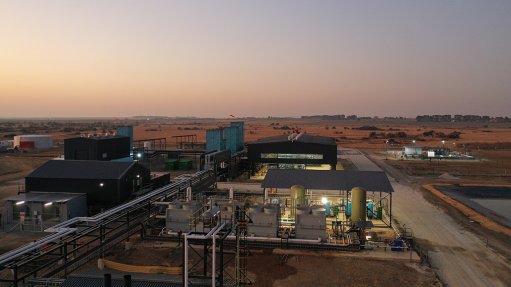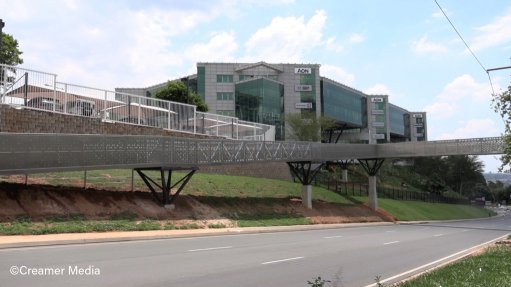Corruption’s heavy toll
Picture this scene: you are driving along a road in suburban Johannesburg and a stern-looking cop pulls you over, informing you, as you wind down your window, that you have exceeded the speed limit or committed any of several traffic infractions. In a tone that can put the fear of God into any mortal, you are told this will set you back several hundred rands in fines. His facial features then undergo almost instantaneous transformation and, as you look up, the officer, now semi-smiling, makes you an offer: give him money for a ‘drink’ – any amount – and you will be let off the hook.
I gather encounters of this sort play themselves out all too frequently across the length and breath of South Africa. In some cases, the ‘offer’ is accepted, perhaps out of fear of unknown consequences should the motorist refuse to play ball.
Of course, ‘drink money’ is a euphemism for ‘bribe’, and petty bribe-taking by police officers and other low-ranking civil servants is only one incarnation of a cancer gnawing at South African society, namely corruption.
A more pernicious form is corruption in high places in both the public and private sectors. Its toll runs into colossal sums. According to an economic modelling exercise undertaken by the Department of Economic Development, were it not for corruption, South Africa’s gross domestic product (GDP) growth would be at least R27-billion higher each year. This is based on the very conservative assumption that the cost of infrastructure projects increases by 10% where crooked government officials collude with equally crooked private-sector contractors.
There are other ramifications of corruption. Answering a question in the National Assembly in September last year, Economic Development Minister Ebrahim Patel stated that the muted GDP growth as a result of high-level corruption means that the South African economy cannot potentially create an additional 76 000 jobs each year. This in a country where six-million people, or 26.7% of the economically active population, were without a job during the first quarter of this year, according to the latest figures from Statistics South Africa. That is if one uses the narrow definition of unemployment; the expanded definition, which includes those who have given up looking for a job, elevates the figure to 36.7%.
But the public sector does not have a monopoly on corruption in South Africa. As those who follow developments in the country will recall, the big construction companies, working in cahoots with one another, fleeced government of billions of rands when they built stadiums and other infrastructure for the 2010 FIFA World Cup. Other sectors – pharmaceuticals, poultry farming and maize and wheat production – have also been involved in this kind of behaviour. In a 2016 study, the World Bank noted that 76 cartels were bust in this country from 2005 to 2015 and calculated that tackling overcharging by only the pharmaceuticals and food- related cartels would lift at least 200 000 South Africans above the poverty line.
If it is any consolation, South Africa made it into the least-corrupt half of the countries surveyed by antigraft watchdog Transparency International in a study whose results were released in February. The country scored 43 points – the same as Bulgaria and the Asia Pacific island of Vanuatu – to secure seventy-first place out of 180 countries. New Zealand, at 89 points, was found to be the least corrupt country in the world, with Denmark, Finland and Norway in second, third and fourth place respectively.
In terms of regions, Western Europe was the best performer, with an average score of 66 points. Sub-Saharan Africa, home to Somalia, which garnered the least number of points – 9 – was the poorest performer, averaging 32 points. It was followed by Eastern Europe and Central Asia, which averaged 34 points.
But simply being in the least-corrupt half is not enough – South Africa must aspire to be in the same league as Botswana, the Seychelles, Cabo Verde, Rwanda and Namibia. These African countries outperformed some Organisation for Economic Cooperation and Development member nations, such as Italy, Greece and Hungary.
Article Enquiry
Email Article
Save Article
Feedback
To advertise email advertising@creamermedia.co.za or click here
Comments
Announcements
What's On
Subscribe to improve your user experience...
Option 1 (equivalent of R125 a month):
Receive a weekly copy of Creamer Media's Engineering News & Mining Weekly magazine
(print copy for those in South Africa and e-magazine for those outside of South Africa)
Receive daily email newsletters
Access to full search results
Access archive of magazine back copies
Access to Projects in Progress
Access to ONE Research Report of your choice in PDF format
Option 2 (equivalent of R375 a month):
All benefits from Option 1
PLUS
Access to Creamer Media's Research Channel Africa for ALL Research Reports, in PDF format, on various industrial and mining sectors
including Electricity; Water; Energy Transition; Hydrogen; Roads, Rail and Ports; Coal; Gold; Platinum; Battery Metals; etc.
Already a subscriber?
Forgotten your password?
Receive weekly copy of Creamer Media's Engineering News & Mining Weekly magazine (print copy for those in South Africa and e-magazine for those outside of South Africa)
➕
Recieve daily email newsletters
➕
Access to full search results
➕
Access archive of magazine back copies
➕
Access to Projects in Progress
➕
Access to ONE Research Report of your choice in PDF format
RESEARCH CHANNEL AFRICA
R4500 (equivalent of R375 a month)
SUBSCRIBEAll benefits from Option 1
➕
Access to Creamer Media's Research Channel Africa for ALL Research Reports on various industrial and mining sectors, in PDF format, including on:
Electricity
➕
Water
➕
Energy Transition
➕
Hydrogen
➕
Roads, Rail and Ports
➕
Coal
➕
Gold
➕
Platinum
➕
Battery Metals
➕
etc.
Receive all benefits from Option 1 or Option 2 delivered to numerous people at your company
➕
Multiple User names and Passwords for simultaneous log-ins
➕
Intranet integration access to all in your organisation
















